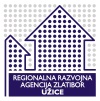Improving Environment for Businesses at Local Level through Regulatory Reform
The project "Improving Environment for Businesses at Local Level through Regulatory Reform" has been set up to contribute to a better business environment in local communities in Serbia, and therefore to a higher level of attraction of private investments. Special attention is dedicated to one of the main obstacles - long and unnecessary complicated local administrative procedures that slow-down business operations and adversely affect the local economy and employment. Our aim is to improve business operation through simplified regulations.
Business-related administrative procedures and processes are usually overburdened and require serious attention at both, central and the city/municipal level, in order to stimulate a more conducive business environment. In addition, the business community in Serbia constantly stresses the need to improve the regulatory framework necessary to facilitate the business operations.
As a result of a joint initiative, the Standing Conference of Towns and Municipalities (SCTM), the Association of Towns and Municipalities in Serbia, and OPTIMUS - Center for Good Governance, launched the Project "Improving Environment for Businesses at Local Level through Regulatory Reform", supported by the Swiss State Secretariat for Economic Affairs (SECO).
Project has started in December 2011 and is planned to last until November 2014. The Project builds on the results of the Sub-national Competitiveness Project implemented by the International Finance Corporation (IFC) in the period 2007-2010, providing further support to the regulatory reform process in Serbian local governments, all in line with the relevant national strategies. The overall goal of the Project is to produce better business enabling environment in local communities in Serbia. This goal is intended to be reached, at the local level of government, by simplifying business-related administrative procedures, in order to:
- Reduce the costs and time required from businesses;
- Build sustainable regulatory mechanisms for new, low cost and low risk regulations;
- Increase transparency and efficiency of public administration at the local level
Activities
Component 1 of the Project, implemented by the Standing Conference of Towns and Municipalities, includes:
- Development of models for selected sets of simplified administrative procedures, especially in less developed municipalities,
- Testing the models through the implementation in 10 selected municipalities,
- Capacity building of local administrative staff, and
- Offering models to other interested municipalities throughout Serbia, with additional assistance in the implementation.
Component 2 of the Project, implemented by Optimus – Center for Good Governance, includes:
- Systematic regulatory reform of business administrative procedures in six selected cities/municipalities,
- Introducing principles of regulatory impact assessment (RIA) when preparing local regulations,
- Introduction of on-line registries of administrative procedures, and
- Capacity building of local public authorities and officials.
Expected Results
- Direct and indirect savings for businesses in selected localities which will directly lead to easier operation of companies and increased competitiveness of the locality;
- Increased transparency of procedures through legally secure e-Registry which would increase access to information and reduce possibility of corruption;
- Improved efficiency of servicesprovided by public administration, through reducing of deadlines, streamlining procedures and reforming administrative processes;
- Improved regulation quality through: institutional framework and regulatory reform management system, applied Regulatory Impact Assessment and consultations with stakeholders (reducing the red tape and other formalities);
- Possibility for smaller municipalities to streamline administrative procedures and improve services by using model sets which should attract new investments with possible effects on poverty reduction.














